Abstract
Entry of antibiotics into phagocytes is necessary for activity against intracellular organisms. Therefore, we examined the uptake of five of the newer antibiotics--roxithromycin (RU 965), imipenem, cefotaxime, trimethoprim, and metronidazole--by human polymorphonuclear leukocytes (PMN). Antibiotic uptake by PMN was determined by a velocity gradient centrifugation technique and expressed as the ratio of the cellular concentration of antibiotic to the extracellular concentration (C/E). Cefotaxime, like other beta-lactam antibiotics, was taken up poorly by phagocytes (C/E less than or equal to 0.3). The metronidazole concentration within PMN was similar to the extracellular level. Imipenem bound rapidly to phagocytes (C/E = 3), but cell-associated drug progressively declined during the incubation period. Trimethoprim was well concentrated by PMN (C/E = 9 to 13), and uptake was unexpectedly greater at 25 degrees C than at 37 degrees C. The most striking finding was that roxithromycin was more avidly concentrated by PMN (C/E = 34) than any other antibiotic we studied. Entry of roxithromycin into phagocytes was an active process and displayed saturation kinetics characteristic of a carrier-mediated membrane transport system. Ingestion of microbial particles by PMN slightly decreased the ability of these cells to accumulate roxithromycin (C/E = 24 to 31). These studies identified two antibiotics, trimethoprim and especially roxithromycin, which are markedly concentrated within human PMN and may prove useful in treatment of infections caused by susceptible intracellular organisms.
Full text
PDF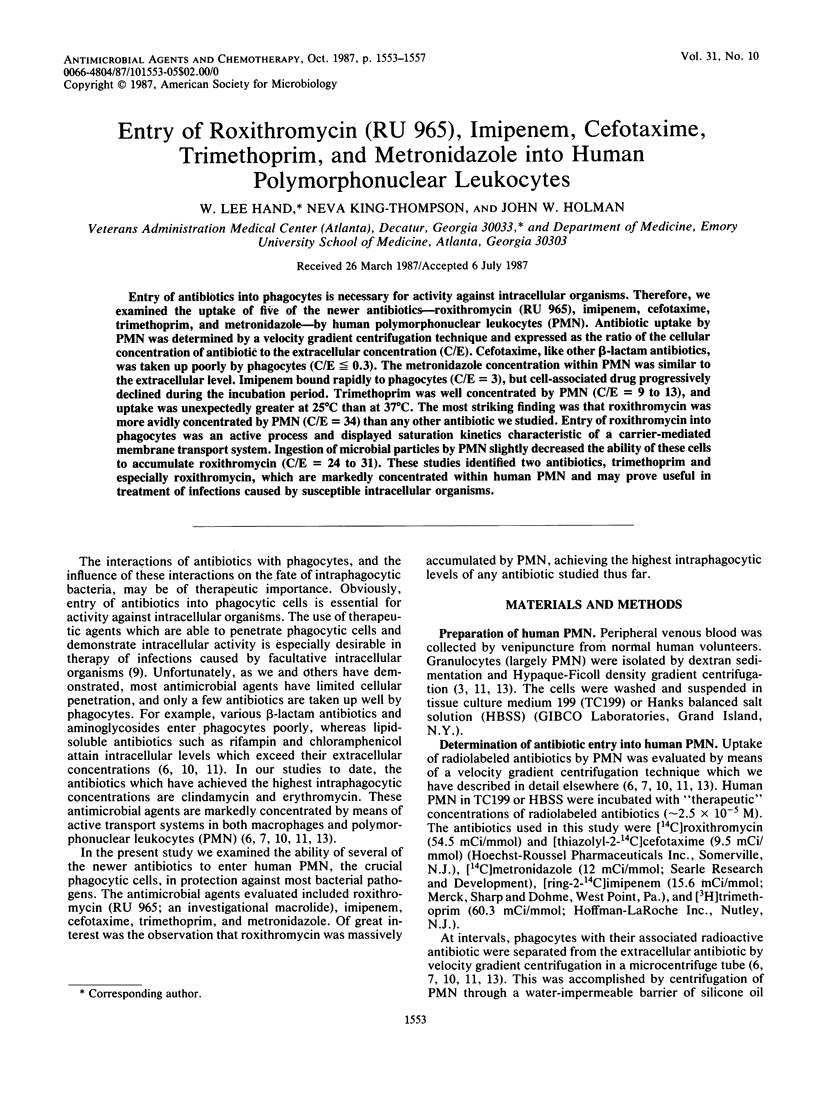
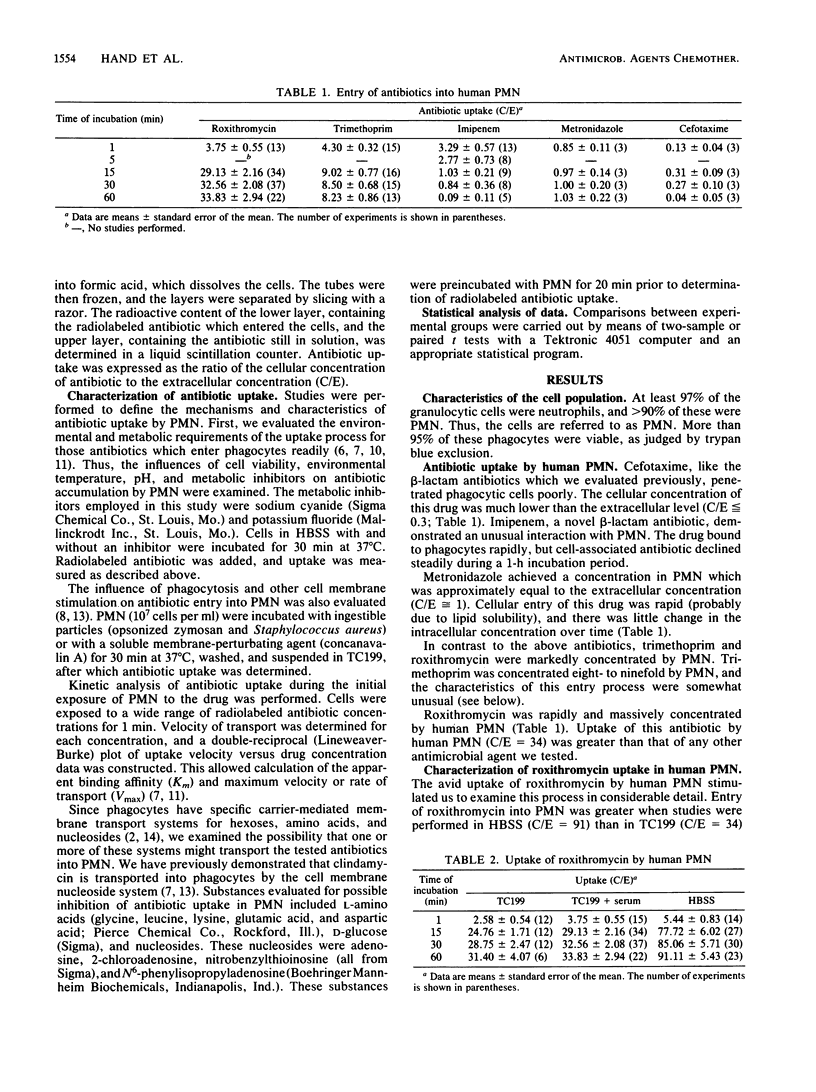
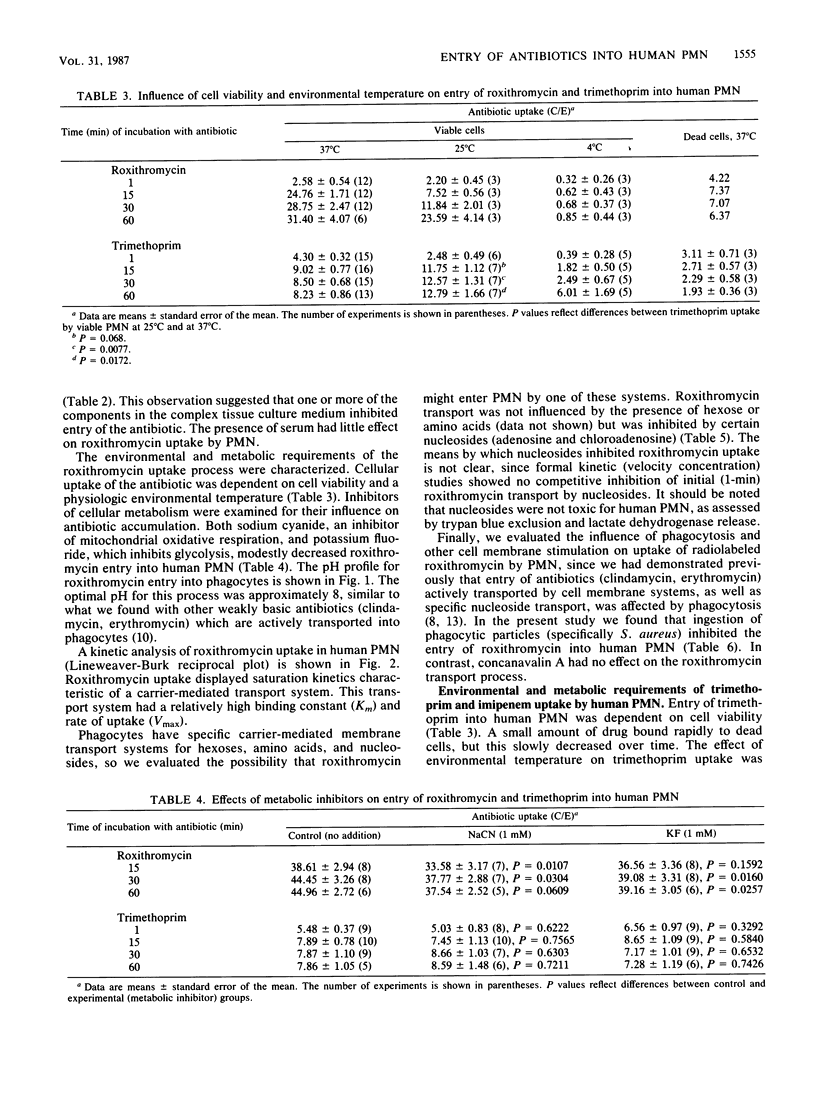
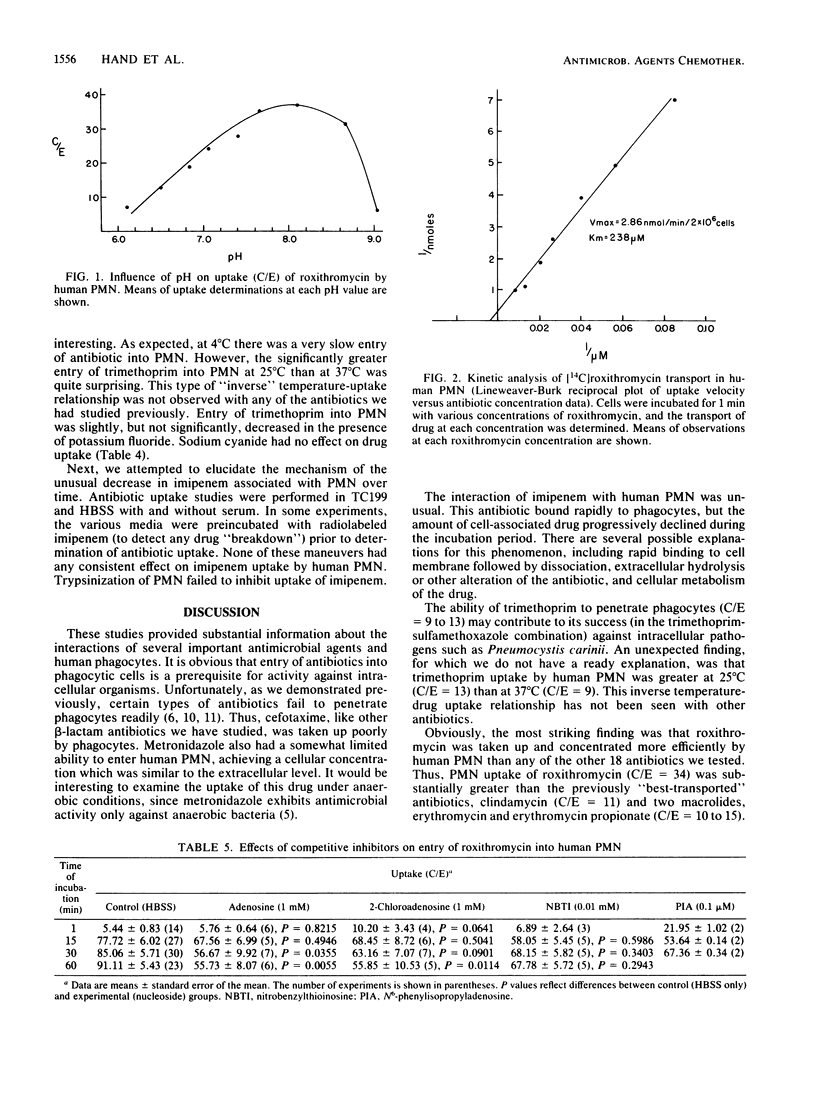
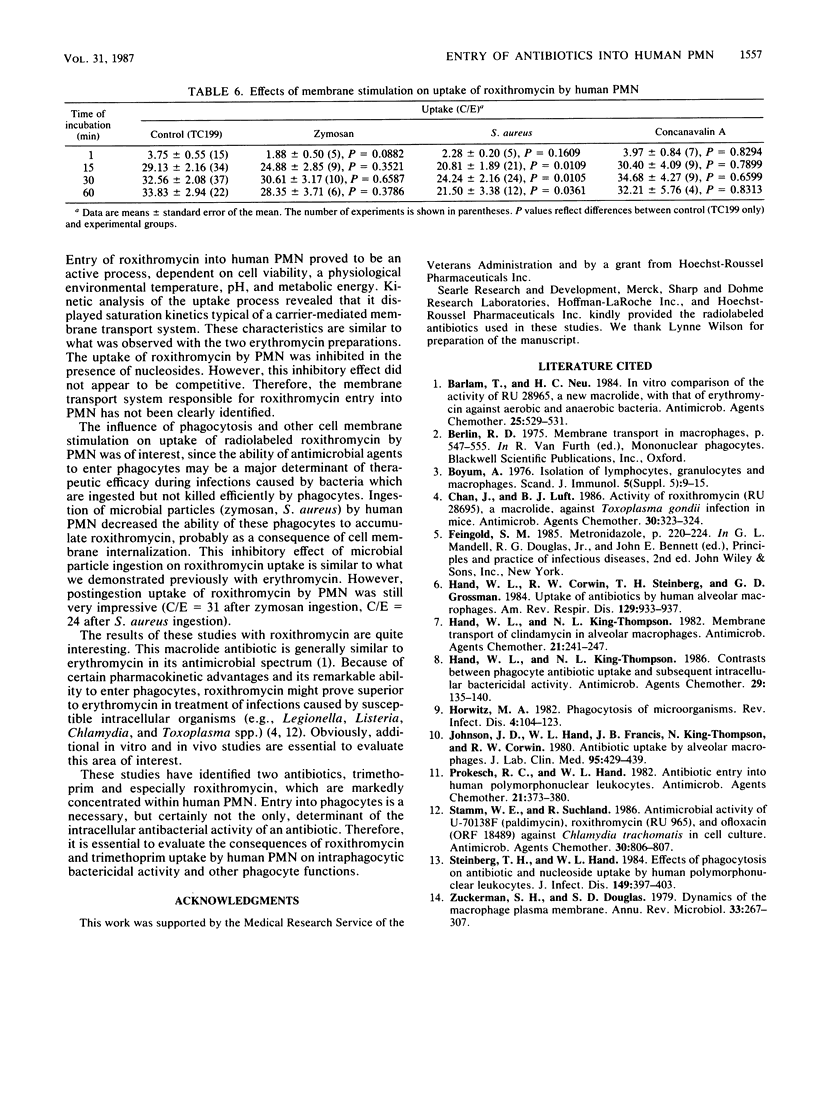
Selected References
These references are in PubMed. This may not be the complete list of references from this article.
- Barlam T., Neu H. C. In vitro comparison of the activity of RU 28965, a new macrolide, with that of erythromycin against aerobic and anaerobic bacteria. Antimicrob Agents Chemother. 1984 Apr;25(4):529–531. doi: 10.1128/aac.25.4.529. [DOI] [PMC free article] [PubMed] [Google Scholar]
- Bøyum A. Isolation of lymphocytes, granulocytes and macrophages. Scand J Immunol. 1976 Jun;Suppl 5:9–15. [PubMed] [Google Scholar]
- Chan J., Luft B. J. Activity of roxithromycin (RU 28965), a macrolide, against Toxoplasma gondii infection in mice. Antimicrob Agents Chemother. 1986 Aug;30(2):323–324. doi: 10.1128/aac.30.2.323. [DOI] [PMC free article] [PubMed] [Google Scholar]
- Hand W. L., Corwin R. W., Steinberg T. H., Grossman G. D. Uptake of antibiotics by human alveolar macrophages. Am Rev Respir Dis. 1984 Jun;129(6):933–937. doi: 10.1164/arrd.1984.129.6.933. [DOI] [PubMed] [Google Scholar]
- Hand W. L., King-Thompson N. L. Contrasts between phagocyte antibiotic uptake and subsequent intracellular bactericidal activity. Antimicrob Agents Chemother. 1986 Jan;29(1):135–140. doi: 10.1128/aac.29.1.135. [DOI] [PMC free article] [PubMed] [Google Scholar]
- Hand W. L., King-Thompson N. L. Membrane transport of clindamycin in alveolar macrophages. Antimicrob Agents Chemother. 1982 Feb;21(2):241–247. doi: 10.1128/aac.21.2.241. [DOI] [PMC free article] [PubMed] [Google Scholar]
- Horwitz M. A. Phagocytosis of microorganisms. Rev Infect Dis. 1982 Jan-Feb;4(1):104–123. doi: 10.1093/clinids/4.1.104. [DOI] [PubMed] [Google Scholar]
- Johnson J. D., Hand W. L., Francis J. B., King-Thompson N., Corwin R. W. Antibiotic uptake by alveolar macrophages. J Lab Clin Med. 1980 Mar;95(3):429–439. [PubMed] [Google Scholar]
- Prokesch R. C., Hand W. L. Antibiotic entry into human polymorphonuclear leukocytes. Antimicrob Agents Chemother. 1982 Mar;21(3):373–380. doi: 10.1128/aac.21.3.373. [DOI] [PMC free article] [PubMed] [Google Scholar]
- Stamm W. E., Suchland R. Antimicrobial activity of U-70138F (paldimycin), roxithromycin (RU 965), and ofloxacin (ORF 18489) against Chlamydia trachomatis in cell culture. Antimicrob Agents Chemother. 1986 Nov;30(5):806–807. doi: 10.1128/aac.30.5.806. [DOI] [PMC free article] [PubMed] [Google Scholar]
- Steinberg T. H., Hand W. L. Effects of phagocytosis on antibiotic and nucleoside uptake by human polymorphonuclear leukocytes. J Infect Dis. 1984 Mar;149(3):397–403. doi: 10.1093/infdis/149.3.397. [DOI] [PubMed] [Google Scholar]
- Zuckerman S. H., Douglas S. D. Dynamics of the macrophage plasma membrane. Annu Rev Microbiol. 1979;33:267–307. doi: 10.1146/annurev.mi.33.100179.001411. [DOI] [PubMed] [Google Scholar]


